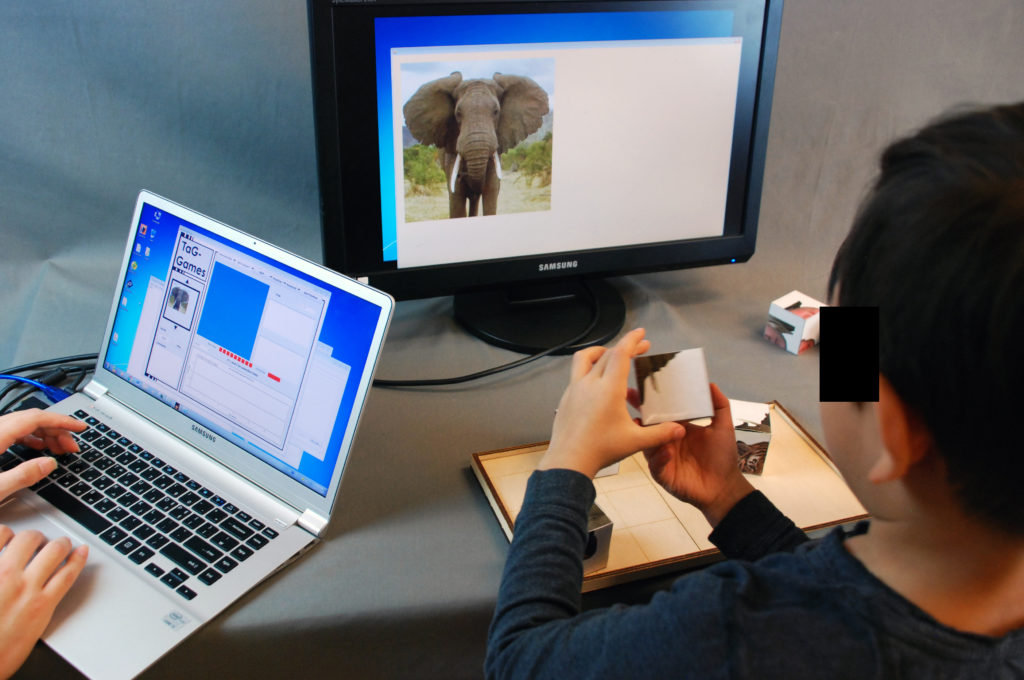
Figure. A child playing with TAG-Games.
Background: This paper presents design and results from preliminary evaluation of Tangible Geometric Games (TAG-Games) for cognitive assessment in young children. The TAG-Games technology employs a set of sensor-integrated cube blocks, called SIG-Blocks, and graphical user interfaces for test administration and real-time performance monitoring. TAG-Games were administered to children from 4 to 8 years of age for evaluating preliminary efficacy of this new technology-based approach.
Methods: Five different sets of SIG-Blocks comprised of geometric shapes, segmented human faces, segmented animal faces, emoticons, and colors, were used for three types of TAG-Games, including Assembly, Shape Matching, and Sequence Memory. Computational task difficulty measures were defined for each game and used to generate items with varying difficulty. For preliminary evaluation, TAG-Games were tested on 40 children. To explore the clinical utility of the information assessed by TAG-Games, three subtests of the age-appropriate Wechsler tests (i.e., Block Design, Matrix Reasoning, and Picture Concept) were also administered.
Results: Internal consistency of TAG-Games was evaluated by the split-half reliability test. Weak to moderate correlations between Assembly and Block Design, Shape Matching and Matrix Reasoning, and Sequence Memory and Picture Concept were found. The computational measure of task complexity for each TAG-Game showed a significant correlation with participants’ performance. In addition, age-correlations on TAG-Game scores were found, implying its potential use for assessing children’s cognitive skills autonomously.
